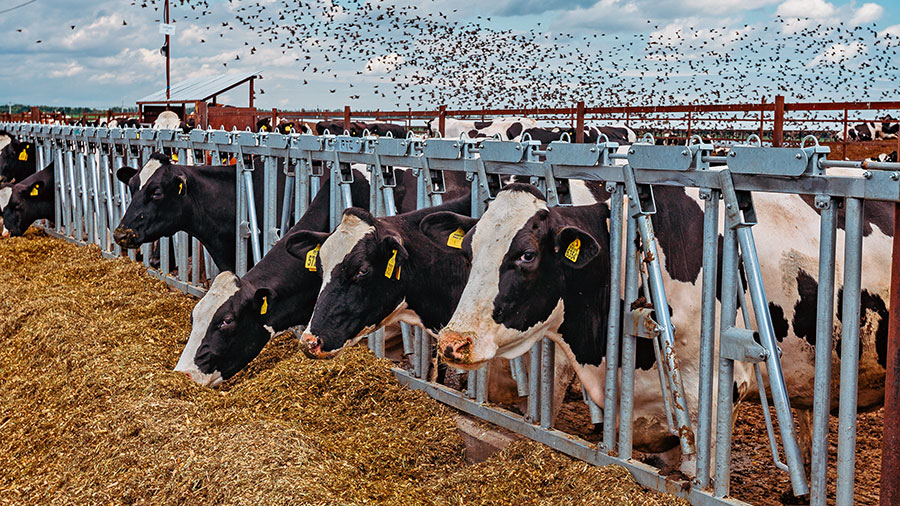Eligible Animals Receive Free Insulin During the Study
[row][column size=”6″]
Veterinarians at the University of Illinois College of Veterinary Medicine are looking for dogs and cats that have been diagnosed with diabetes to investigate a promising treatment for the disease, one that acts via the microbiome. The treatment is call “fecal microbiota transplantation,” and yes, that means exactly what it sounds like: the “good bacteria” from the poop of a healthy animal is transplanted into the gastrointestinal tract of the diabetic pet.[/column]
[column size=”6″]
[callout title=”Is Your Pet Eligible?”]To find out if your diabetic pet could be enrolled in the fecal microbiota transplantation study, please complete this brief questionnaire. The study requires you to bring your pet to the Veterinary Teaching Hospital in Urbana, Ill., several times over the course of the study.
[/callout][/column][/row]
Dr. Arnon Gal, who is boarded in the fields of small animal internal medicine and veterinary pathology, is leading the study. He recently answered questions about the study and which animals would be eligible to participate.
Is Diabetes a Problem in Pets?
“Diabetes mellitus is one of the most common hormonal diseases of dogs and cats,” said Dr. Gal. “Treatment of diabetes requires the owner to give daily injections of insulin to the diabetic pet, to switch the pet to a ‘diabetes-friendly’ diet, and to make frequent visits to the veterinarian to make sure the diabetes is in control.”
![[Dr. Arnon Gal with a cat]](https://vetmed.illinois.edu/wp-content/uploads/2021/04/Gal-cat-240x300.jpg) Maintaining control of the diabetes means giving the right dose of insulin to keep the pet’s glucose levels in a safe range to avoid hypoglycemia, or low levels of glucose in the blood. The time, stress, and expense of having a diabetic pet takes a toll on the owner.
Maintaining control of the diabetes means giving the right dose of insulin to keep the pet’s glucose levels in a safe range to avoid hypoglycemia, or low levels of glucose in the blood. The time, stress, and expense of having a diabetic pet takes a toll on the owner.
“A recent study reported that 20 percent of dogs and cats were euthanized within a year of their diagnosis with diabetes due to the impact that the intensive management of diabetes has on the perceived quality of life of both the pet and the owner,” Dr. Gal noted.
Finding a treatment that could reduce diabetic pets’ dependence on insulin shots could help more of these pets live longer.
What Is the Microbiome, and How Is It Related to Diabetes?
The gastrointestinal microbiome has been defined as “a highly diverse community of microorganisms, primarily bacteria, that inhabit the intestinal tract.” There are trillions of bacteria living the intestinal tract of mammals, far more than the number of cells that make up the individual’s entire body.
“The gut microbiome has recently been recognized as functioning like a hormonal organ (e.g., the thyroid and pancreas) because it produces hormone-like molecules that affect dog and cat tissues,” Dr. Gal said. “Several types of intestinal bacteria produce short-chain fatty acids (SCFAs) by fermentation of dietary fiber. SCFAs influence energy levels, the immune system, and the health of the intestine.
“Recent studies have indicated a strong link between lower levels of SCFAs made by bacteria in the gut and diseases such as pre-diabetes and diabetes in people. Cats with diabetes have also been found to have fewer SCFA-producing bacteria in their gut microbiomes.”
It is thought that SCFAs may impact diabetes by producing a substance called glucagon-like peptide 1 (GLP-1), which makes the pancreas more responsive to blood glucose levels.
Are Fecal Transplantations Safe?
“Transplantation of feces from a healthy donor into the intestine of a sick patient have been done successfully in people, laboratory rodents, and dogs,” explained Dr. Gal. “The procedure was shown to improve insulin sensitivity in obese humans with diabetes. In a recent study from New Zealand, fecal transplantation from healthy dog donors resulted in enriched ‘good bacteria’ for up to 30 days in dogs with acute intestinal inflammation and hemorrhage after a single fecal transplantation.”
Dr. Gal believes that fecal transplantation has the ability to reshape the microbiome ecology of pets.
“We are on the verge of a new era in veterinary (and human) medicine where we can substantially improve the clinical control of diabetes in dogs and people by manipulating gut microbiota,” he said.
“Cats develop diabetes through a different pathway from dogs. I believe fecal transplantation has a high potential to induce remission in cats with diabetes, working through the relationship of GLP-1 to pancreatic insulin to substantially improve glucose tolerance and insulin sensitivity.”
What Is the Goal of Your Clinical Trial, and What Should Owners Who Are Interested in the Trial Do?
“Currently, it is not known whether transplanting intestinal microbiota from healthy donors to diabetic patients will re-establish ‘good bacteria’ that make SCFAs, decrease the ‘bad bacteria’ associated with diabetes, and lead to better control of blood glucose levels,” said Dr. Gal.
The small animal internal medicine service at the Veterinary Teaching Hospital in Urbana is seeking diabetic dogs and cats for this clinical trial to address that unknown.
“Eligible dogs and cats must have a diagnosis of diabetes, and their diabetes must be under good control. The animals must be otherwise healthy,” he said.
If accepted into the study, all animals will be provided insulin for the duration of the study at no cost. Owners will bring their pet to the hospital several times for tests, which will be funded through the study. Study participants will be randomly assigned to receive either the fecal transplant or a saline solution.
To find out whether their pet is eligible to enroll, owners should complete the brief online form at go.illinois.edu/diabeticpet.
Featured image from Pixabay.

![[cat with a toy]](https://vetmed.illinois.edu/wp-content/uploads/2021/04/pc-gal-microbiome.jpg)


